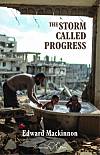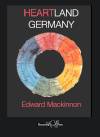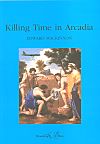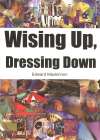* * *
Edward Mackinnon’s latest collection The Storm Called Progress (2018) takes as its motto Walter Benjamin’s description of the ceaseless storm of warfare propelling the world into the future — the storm we call progress. The poems are about this storm and other things we can’t turn our backs on: our personal history and the mystery behind the images and captions of the family photo album.
The first half of Heartland Germany (2014) explores German discord and divisions, moving from the personal to the political plane and tracing a path from nineteenth-century literary figures like Kleist, Büchner and Heine to the Cold War. The themes are counterpointed by the author’s translations of poems by Rilke, Volker Braun, Karl Mickel, Thomas Brasch and Ernst Jandl.
In Killing Time in Arcadia (2006) the author traces the contours of a personal and political geography of Lincolnshire, Scotland, the United States and other parts of the real world, before exploring a virtual home in the warmth of Arcadia.
"Mackinnon explores ideas of home and memory, time and change, person and place in poems characterised by their inventiveness and adroitness. The twelve pages of The Bus to Arcadia demonstrate Mackinnon's control of largeish masses and interconnected structures of thought; a set of twenty-six one-couplet poems demonstrates an entertaining skill in pointed brevity ...
... this is a collection of sustained interest, full of ideas and imagination, of serious wit, and is warmly recommended".
Elizabeth Heywood, review in Acumen
Wising Up, Dressing Down was published in 2002.
"I enjoyed the energy and wit of these poems .. some real gems here, refreshingly clever without being smart-arse"
The Frogmore Papers
"His formal control is always in evidence ... He wears his learning lightly and you feel the 'compulsion necessary' for poetic success throughout this well-hinged and carefully constructed collection ... Mackinnon's poems display trepidation and defiance: knowing when to stop and when you have to start"
Tears in the Fence
"a compelling story-teller .. completely free of the charge of having nothing to say"
Orbis
You can also read some of my own "poetry criticism" on this website, a close reading of one poem by each of the following British poets: Stuart Henson, Richard Berengarten, Keith Armstrong, Peter Phillips, Martin Hayes and Owen Gallagher. In my comments I have tried to show why I value these poems. These are not all "big name" poets, though in my view their work ought to be much better known. They have all published several collections.
Finally, here are three short essays on “modern masters”, poets who died at the close of the twentieth century and whose work I greatly admire: R.S. Thomas, Sorley MacLean and Ernst Jandl, and longer essays on Paul Celan and Volker Braun.
Edward Mackinnon studied modern languages at St John’s College, Cambridge and Warwick University. He now lives in south-west France.

Web site designed and maintained by Cornwell Internet
Last update:
July 09 2019



